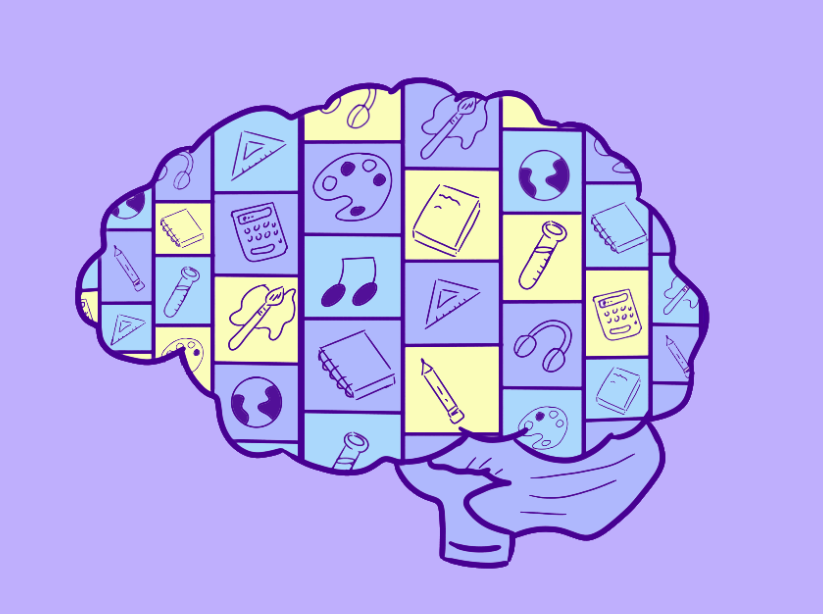Mosaic of Learning | How TikTok gets you addicted
Mosaic of Learning is a biweekly blog that takes a look at research and education at the University.
January 28, 2022
If you’ve ever listened to Emma Chamberlain’s podcast “Anything Goes,” you probably know that she is an avid TikTok hater. Emma reasons that endless hours spent on TikTok can render your day essentially useless. Personally, I spend too much of my time on TikTok when I should probably be studying. My five-minute “study breaks” almost always turn into five hours wasted on TikTok.
But why is TikTok so addictive? According to Julie Albright, a professor at USC, similar to gambling, TikTok relies on random reinforcement — you either come across a video that you are not interested in and immediately scroll away or one that completely captivates you. When you find a video you like, you hit the jackpot and your dopaminergic reward system activates. I always thought it was a fallacy when adults say that phones and social media ruin our brains. Turns out, they really do.
This phenomenon also pertains to other social media, such as Instagram and Twitter, but TikTok is one of the fastest-growing social media platforms. This growth can be understood through the “uses and gratification theory.” Three researchers proposed a version of this theory in 1972 with four uses of media — diversion or escapism from the real-world problems, personal relationships, personal identity and surveillance. TikTok immediately checks these four boxes, meaning users are more likely to constantly seek out the app and become addicted.
I personally downloaded TikTok in March 2020 at the start of the COVID-19 pandemic. It seemed like if I wanted to keep up with current trends and information, I had to download the app. Instagram and Twitter just weren’t cutting it. At first, it appeared almost cultic. Now, my For You page is perfectly tailored to my interests.
TikTok’s addictiveness runs even deeper. The app’s short 15-second videos were enough to get many hooked. However, multiple studies have shown that TikTok has led to decreased attention spans. This explains why solving a single organic chemistry problem makes me think I have accomplished enough to warrant spending five minutes on TikTok.
At the start of the spring semester, I decided to delete TikTok to see how much it would change my productivity. During the first week, I was bored out of my mind a lot. I saw my friends scrolling on TikTok and was unsure of what to do. However, as the semester has continued, I noticed that I complete my work more efficiently. I actually have time at the end of the day to relax and, because of this, I’ve been waking up earlier. While it’s hard to click the delete button for the TikTok app, I highly recommend it. The days actually feel 24 hours long now.
Khushi writes about research, education and events taking place at Pitt. Talk to her at [email protected].








